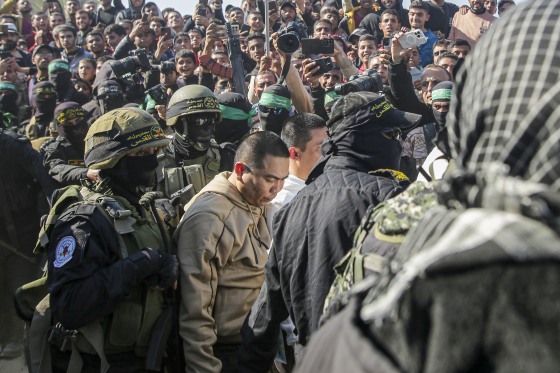
Five Thai nationals who had been taken captive by Hamas since its attack on Israel on October 7, 2023, were freed on Thursday.
They were among the 31 Thais who were captured by the militant group; 23 of them have since been freed. Two more people have been officially declared dead, and it’s unclear how one of them is doing.
Thailand’s Ministry of Foreign Affairs reports that 46 Thais, including the two who perished in Hamas captivity, had been slain in the fighting.
Tens of thousands of Thai laborers were employed in Israel, including them.
Israel used to rely mostly on Palestinian labor, but with the first Intifada, a Palestinian uprising that lasted from 1987 to 1993, it began to import a lot of migrant labor.
The majority were from Thailand, and Thai people continue to make significantly more money in Israel than they do back home, making them the largest group of foreign agricultural workers.
Ten years ago, Thailand and Israel signed a bilateral agreement to facilitate work for agricultural workers.
The working conditions of Thai farm laborers have drawn criticism to Israel. According to a 2015 report by Human Rights Watch, they were frequently kept in improvised and subpar housing, paid wages that were much less than the legal minimum wage, made to work longer hours than the law permitted, exposed to hazardous working conditions, and denied the opportunity to switch employers.
More recently, a monitoring group discovered that the majority were being paid less than the minimum wage required by law.
Before the Hamas attack on October 7, there were over 30,000 Thai laborers in Israel, mostly engaged in agricultural labor.
About 7,000 people went back home after the attack, mostly on government evacuation planes, but newcomers have been drawn in by the greater earnings. Pannabha Chandraramya, the Thai ambassador to Israel, stated on Thursday that about 38,000 Thai employees are currently employed in Israel.
Following the departure following the Hamas attack, Israel’s Agriculture Ministry issued incentives in an attempt to get foreign workers to return to areas that had been evacuated due to a labor shortage.
It promised, among other things, to pay incentives of roughly $500 per month and to extend work visas.
Israel remained one of the top four countries for Thais to work overseas last year after the Labor Ministry of Thailand authorized 3,966 Thai workers to work there in 2024.
Thai migrant workers typically hail from less affluent areas of the nation, particularly the northeast, and their salaries in Israel were significantly higher than their earnings back home even before bonuses.
